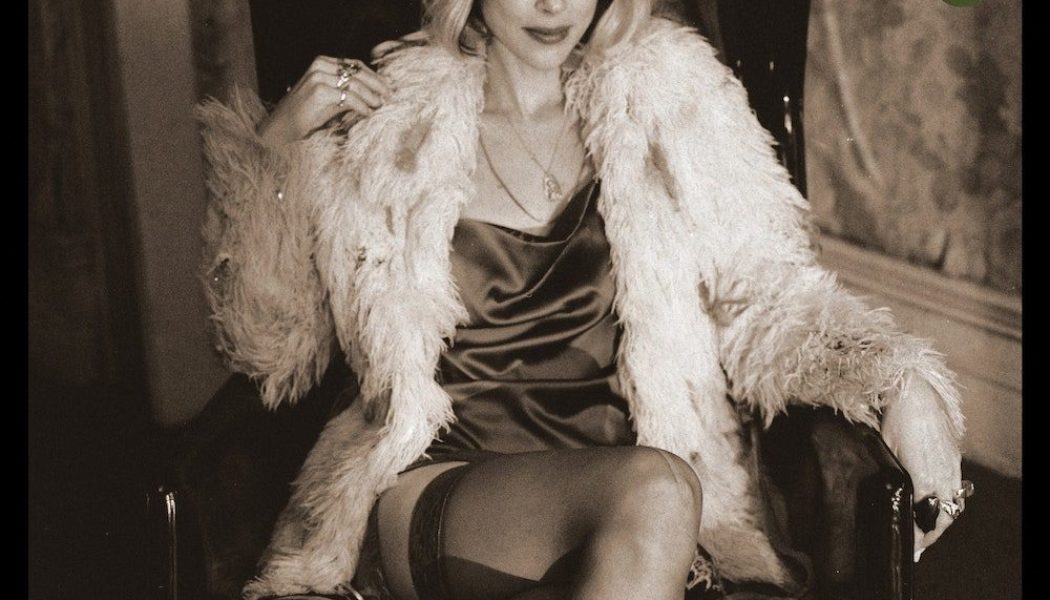
St. Vincent’s seventh album is her first ever to feel like an exhale, as the patently ambitious songwriter shrewdly forgoes much of the brazen — and regularly challenging — synth-rock spectacles of muses David Bowie and David Byrne. Instead, she’s settled in with the grit and shabby-chic glamor of early ‘70s Manhattan: heels on the subway, bodega roses, threats of love, violence and disillusion around every corner.
Scenes from the city fuel the album’s lived-in and retro-tinged aesthetic, as do the sounds that dominated the periods’ airwaves, wedged between The Beatles and Sex Pistols: soul, soft-rock and psychedelia (plus a shitload of moody organs).
The arrangements are familiarly nuanced and playful, as the artist born Annie Clark prefers to remain one step ahead, but Daddy’s Home manages to reveal the most accessible music of career. It’s a welcome retreat after the art-pop bombast of her last three records seemed to crystallize on 2017’s neon Masseduction, Clark’s first project with superproducer Jack Antonoff (Taylor Swift, Lorde, Lana Del Rey).
While Antonoff returns as co-producer (with Clark) and co-writer, his touch is decidedly lighter this time, as Clark divides the album into three passages with distinctly varied influences.
The first and most exciting is her dissertation on the grooving funk of Sly and the Family Stone and Curtis Mayfield, namely on the beaming lead single and album opener “Pay Your Way In Pain,” which unpacks a very, very bad day and climaxes with a flirtatious call-and-response between Clark and her howling female background singers.
“What you want, what you want?” they ask in unison.
“I wanna be loved,” Clark wails with fury and desire.
The story continues with a more solemn and cinematic sequel “Down And Out Downtown,” where Clark warps her guitar sound to play almost like a sitar (heck, maybe it is a sitar) and daydreams about floating over the Empire State Building before unsavory reality pulls her back to Earth. A song later, the title track swelters with a tangle of steamy organs, guitars and saxophones as Clark sings of a return from prison. While the track and album moniker are inspired by Clark’s father’s 2019 release from incarceration, after being convicted of white-collar crime in 2010, there’s a sensual quality to the song itself — not so sure “Daddy” means father here.
The next two cuts, “Live in the Dream” and “The Melting of the Sun,” shift homage to the transportative psych-rock of Pink Floyd’s Dark Side of the Moon (Clark name-drops the album on the latter tune). The mini-suite churns and shimmers like gold in molasses, culminating with a hazy and dissonant guitar break that feels far removed from the funky jams preceding it.
The final and finest cluster is indebted to the era-of-honor’s consummate pop and folk songwriters: Carole King, James Taylor, Joni Mitchell and Carly Simon. “My Baby Wants a Baby,” an interpolation of Sheena Easton’s 1980 hit “Morning Train (9 to 5)” — so much for the ‘70s — is a telling ballad detailing Clark’s hesitance to become pregnant, despite her partner’s wishes. The ambiguity toward female tradition is a smart successor to Simon’s breakthrough hit “That’s the Way I’ve Always Heard it Should Be,” which just celebrated its 50th birthday.
Even better is “… At The Holiday Party,” a song of expectations and disappointment, which hinges on a gorgeous, cascading vocal melody — one of Clark’s greatest ever — that endears in a way much of St. Vincent’s cutting yet distant catalog often doesn’t.
Such is the value of Daddy’s Home, which while somewhat disjointed and certainly not the most vital project in Clark’s repertoire, asks less of the listener than just about anything she’s ever done. That’s not meant as a dig; it’s not easy listening, just easier listening.
And for an alternative artist who’s been lauded as one of her generation’s most meticulous craftspeople, this newfound levity and comfort is gladly received, even if it’s ultimately no less tongue-in-cheek than previous releases.
Clark croons with relief on “The Laughing Man,” a moseying midnight slowburn that says it all: “If life’s a joke, I’m dying laughing.”










